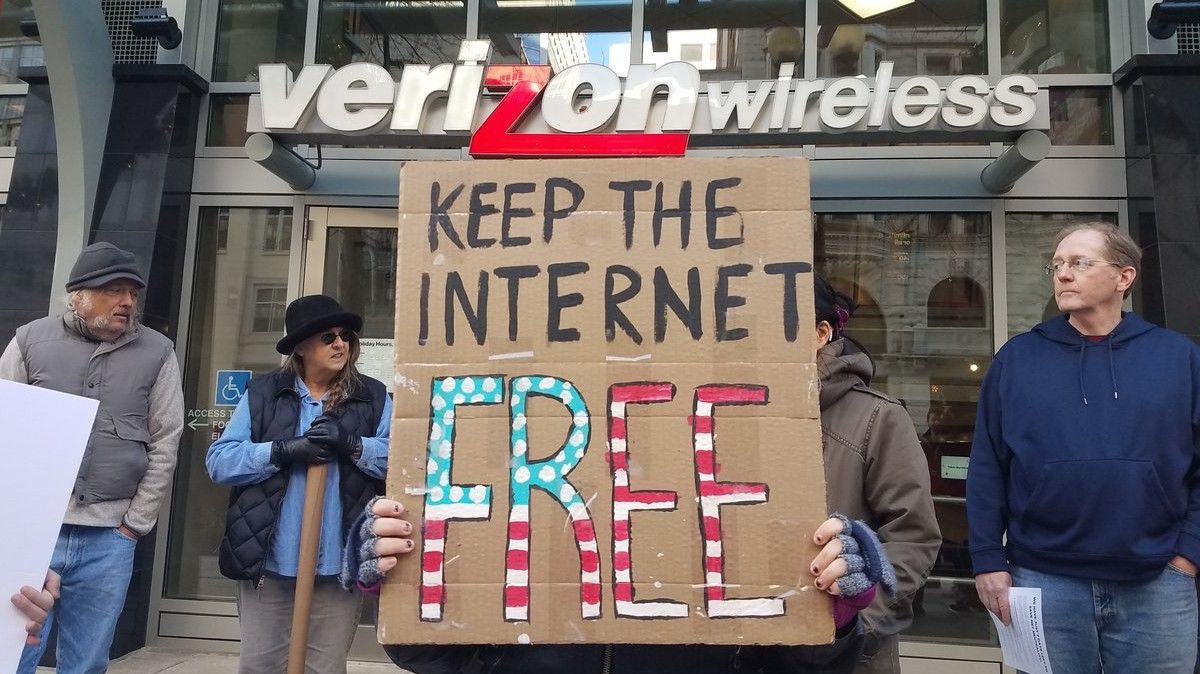Democratic Senators Are Officially Forcing A Net Neutrality Vote

The Senate took final steps to try to restore net neutrality Wednesday by filing a petition to force a vote on an internet freedom resolution. Introduced by Senator Ed Markey (D-MA), the resolution seeks to overturn the Federal Communication Commission’s decision in December to roll back federal net neutrality rules that have been in place since 2015.
Under the Congressional Review Act, Congress basically has the ability to veto any major policy decision that a federal agency makes, and that’s what the resolution would do. Markey needed a total of 30 senators to support the resolution in order to force a vote, a hurdle cleared back in January.
Senators need just a simple majority to pass the resolution, and already have 50 Senators who have pledged to support it—all of the Democrats and Republican Senator Susan Collins of Maine—meaning they need just one more vote for it to pass the Senate.
“We’ve been expecting that the votes will come when the vote comes,” Evan Greer, deputy director for Fight for the Future, a nonprofit digital rights group, said in a phone interview. “If you’re a Republican lawmaker who’s considering siding with your constituents on this, why would you want to paint a giant target on yourself for the ISPs to send their army of lobbyists banging down your door by announcing ahead of time?”
If the net neutrality resolution passes the Senate, it still needs to pass the House and President Trump’s desk before it will be official. But a sister resolution introduced in the House earlier this year quickly garnered the support of dozens of Representatives, giving advocates hope that this path might be the best bet for restoring net neutrality.
For the cynics out there, the Dems in Congress have another very good reason for pushing through these votes: forcing members to take a public stance on net neutrality, making it abundantly clear to their constituents where they land on this issue, even if they have kept mum on it so far. As we head into the midterms, this will no doubt be part of the Democrats’ strategy for campaigning against the GOP. A voting record, after all, is a clear data point that tells voters whether their candidate wants to restore net neutrality, or not.
Greer told me this isn’t the point of the CRA resolution, as far as Fight for the Future is concerned, and stressed that this isn’t a partisan issue. Indeed, Americans across the political spectrum overwhelming oppose the FCC’s decision to repeal.
“It’s a political reality and unquestionably lawmakers who decide to go on the record as being against a free and open internet will have a cost to pay,” Greer said. “But the idea that that’s what this vote is about is a talking point of the ISPs. I’ve dedicated so many hours of my life to mobilizing the internet for this and I’m not doing it to win votes for Democrats. I’m doing it because I want to bring back net neutrality.”
Get six of our favorite Motherboard stories every day by signing up for our newsletter .
READ MORE HERE

